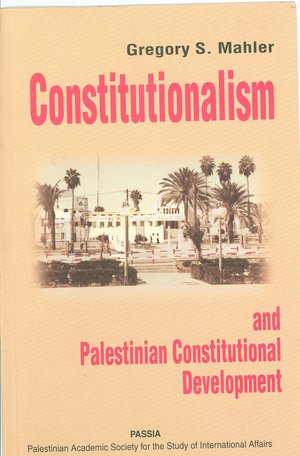Constitutionalism and Palestinian Constitutional Development
This study attempts to assess the prospects of a constitutional government
arising in Palestine. In the first section, Mahler draws on examples from
constitutions and governmental systems throughout the world to illustrate
some general ideas about constitutionalism (functions, ideology, basic laws,
government institutions, jurisdiction, and amending the constitution). Mahler
also goes over various ways of arranging power in a political system (federal,
confederal, and unitary), and discusses the extent to which it is important to
analyze a state’s constitution. In the second part, Mahler examines briefly
the constitutions of Egypt, Iran, Iraq, Israel, Jordan, Kuwait, Lebanon, Libya,
Saudi Arabia and Syria, and discusses constitutionalism in the Middle East
and whether the political culture in the region is suited to foster democratic government. The last section deals with Palestinian political culture as well
as the experience of Palestinians in their efforts towards democratization
and a constitution from the founding of the PLO in 1964 through the present.
The primary evidence cited is from surveys conducted among Palestinians
with regard to their ideas about democracy generally, and especially their
views of the January 1996 elections. Mahler shows how the revisions of the
constitution have mirrored the increasing sophistication of Palestinians and
their increasing attention to making sure that the constitution will protect
citizens’ rights and limit the power of the government. The annex contains
the texts of most of the investigated Middle Eastern countries’ constitutions.
Overview
This project is concerned most broadly with an investigation
of the twin concepts of constitutionalism and constitutional
development. More specifically. it is concerned with the
development of constitutionalism and constitutional political
culture in the Middle East. Most particularly, it is concerned
with the recent progress of constitutional development in
Palestine.
After an initial broad discussion of the nature of
constitutionalism and ideology (Chapter I). this study turns its
attention to a brief examination of constitutions in ten
Middle Eastern nations today, and discusses similarities and
differences between and among these documents
(Chapter II).
The final part of this research (Chapter III) examines
Palestinian political culture and recent efforts on the part of
Palestinians to develop a democratic and constitutional
political culture.
The study concludes (Chapter IV) that there are many
reasons to be optimistic about the future of constitutional
government in Palestine.

